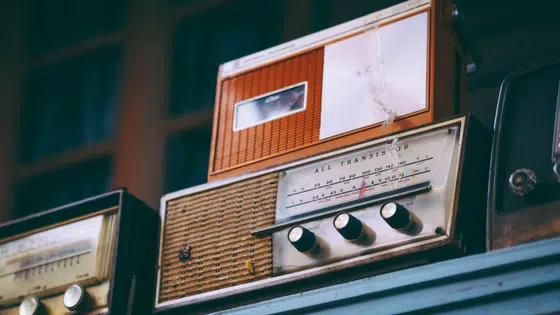Sometimes it feels like if only you could get that one big break, your whole career could change for the better. Oftentimes, it may feel like that break is radio placement. After all, how many people are listening to their favorite radio station, turning to it on their morning and evening commutes, poised perfectly for discovering new music? (Which could be you!)
But for as desirable as it is, it can also feel a bit elusive and quite frankly, overwhelming to tackle on your own. That’s where a radio promoter comes in. They handle the day-to-day tasks of pitching and landing placements, making it your job to simply focus on the rest of your career. But if there’s one thing radio promoters want emerging artists to know, it’s this—radio placement is not a magic bullet to overnight success and, like most breaks in this industry, it doesn’t mean the end of working hard. In fact, it’s only the beginning. But that doesn’t mean it isn’t worth it.
We interviewed radio promoters and artists who have had radio placement success to find out exactly what radio promoters want you to know, and how to make the most of that partnership.
Talent will only get you so far
Of course one of the most important ingredients to an artist’s success is their sound—but it doesn’t stop there. While in decades past, talent may have been enough to carry you through, now you have to think about things like social media presence, fan engagement, your branding and even your overall work ethic.
“One of the big fundamental elements that we look for is high moral character. If we are going to put our stamp of approval on someone, they must be representative of the identity of our brand,” explains Randy Barber of Nashville’s Bar Frog Music.
Remember, hiring a team doesn’t mean you’re free of any responsibilities—it just means now you have a qualified professional to help you along the way.
Expect college and indie radio station placements
As an indie artist, you should expect that college radio and indie stations will be your promoter’s target. While it might be nice to get on the local mainstream station, and they may even hit up a couple, it probably isn’t realistic quite yet. Like with press, you have to first build a foundation with smaller, more targeted placements. Once you begin to build that buzz you can start approaching the larger targets, and because you’ve already built a buzz (and they may have even heard of you by now) you’ll be more likely to grab their attention. This is especially true with radio. The major radio stations listen to the indie stations to see what’s starting to gain traction and the indies listen to the college stations to see what’s going to be the next big song. So while placement on a college station might seem tedious at first, trust that it’s an incredibly important stepping stone to not only the potential of bigger placements, but new fans as well.
When you hire a radio promoter, you’re paying for connections
Much like my own industry of PR, there’s not really a magic bullet when it comes to getting an artist on the radio. All things equal (talented, decent following, etc.), it’s all about the relationships a radio promoter has, and that’s what you’re paying for when you hire one. That and their skill set—it may seem easy to craft and send a pitch, know the right thing to say, and what kind of material to send and in what format but that’s what your promoter is for.
That’s part of why choosing a promoter who has had the placements you want (again, be realistic) and has those connections is so key. This is a huge part of what you’re hiring for, so you want to be sure that you and your promoter are on the same page.
Gaining radio placement will not make you an overnight success
While there’s no doubt that gaining radio placement will be a boost to your career and almost certainly move you in the right direction, keep your expectations realistic. Radio placement will help you to grow as an artist while undoubtedly expanding your fan base, but you’ll need to keep that momentum going on your own end with continued social media activity, performances and connecting with current and new fans.
Remember, any exposure, be it from radio, press, playing shows, licensing, whatever it is—is only as good as the continued work that follows it. When people begin to get curious about your band and go to check you out, what they see is incredibly important. That’s why having an active social media schedule and playing shows/touring regularly is so important. It’s not enough just to intrigue potential fans—you have to work to hook them and keep their interest. So have fun with it! The best part of this job is getting to make an impact on your fans, and radio is just one of many ways to do that.



